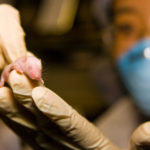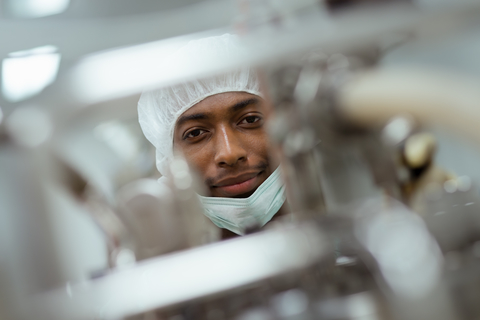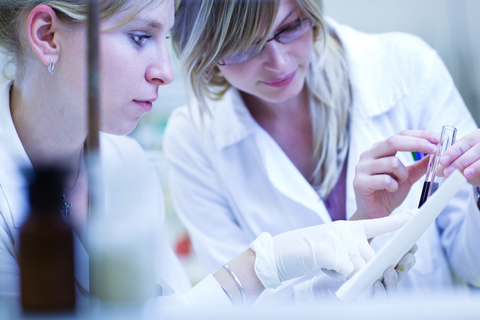
New protein structure designed
Scientists from the University of Bristol have designed a new protein structure, and are using it to understand how protein structures are stabilised (University of Bristol, 2017). This research will help to design small proteins and small molecules that could be the basis for future biotechnologies and medicines. A team of chemists and biochemists from … Continue reading New protein structure designed

University of Bristol symposium looks at humane animal research
The University of Bristol held its first Animal Welfare and Research 3Rs symposium on April 27th (University of Bristol, 2017). The principles of 3Rs, developed over fifty years ago as a framework for humane animal research, are embedded in European and UK law. When researchers at the University of Bristol use animals, they always comply … Continue reading University of Bristol symposium looks at humane animal research

New supercomputer to speed up research at the University of Bristol
Research and teaching at the University of Bristol will now benefit from one of the fastest and most advanced supercomputing facilities in the UK, capable of up to six hundred trillion calculations per second (University of Bristol, 2017). The new multi-million pound system, called Blue Crystal 4 (BC4), is three times faster than its predecessor … Continue reading New supercomputer to speed up research at the University of Bristol

Key gene may be the underlying cause of inflammatory bowel disease
A key gene that helps to explain an underlying cause of inflammatory bowel disease (IBD) has been identified by scientists at the University of Edinburgh and University of Bristol (University of Bristol, 2017). The study shows blocking the gene harms vital parts of the cell and leads to bowel disease, while targeting these vital cell … Continue reading Key gene may be the underlying cause of inflammatory bowel disease

New understanding of the silent changes in genes that cause cystic fibrosis
Researchers studying the root cause of cystic fibrosis have made a major advance in the understanding of silent gene changes with implications for the complexity of cystic fibrosis (University of Bristol, 2017). Cystic fibrosis is a common life-shortening inherited disease that affects over 70,000 people worldwide, the majority of whom are children and young adults. … Continue reading New understanding of the silent changes in genes that cause cystic fibrosis

Heroin combined with non-opioid painkillers leads to a rise in overdose deaths
A multi-disciplinary study has shown that the recent substantial increase in prescriptions for two drugs, pregabalin and gabapentin, used widely for a range of neurological disorders is closely correlated with a rise in the number of overdose deaths in England and Wales (University of Bristol, 2017). These drugs have become drugs of abuse, according to … Continue reading Heroin combined with non-opioid painkillers leads to a rise in overdose deaths

Lab mice may not be effective models for immunology research
Lab mice may not be effective models for studying immune responses to disease according to researchers at the University of Bristol and London School of Hygiene & Tropical Medicine (University of Bristol, 2017). The findings of the study, published in Nature Communications, have implications for all aspects of medical and scientific research because laboratory mice … Continue reading Lab mice may not be effective models for immunology research

Drug combination could help children with arthritis
A clinical trial, funded by Arthritis Research UK and the National Institute for Health Research (NIHR), led by professors from the University of Liverpool and University of Bristol has discovered a drug combination that could help thousands of children with arthritis (University of Liverpool, 2017). Over 5,000 children and adolescents with juvenile idiopathic arthritis (JIA) … Continue reading Drug combination could help children with arthritis

Autism more likely in girls whose maternal grandmothers smoked
Scientists from the University of Bristol have looked at all 14,500 participants in Children of the 90s and found that if a girl’s maternal grandmother smoked during pregnancy, the girl is 67% more likely to display certain traits linked to autism, such as poor social communication skills and repetitive behaviours (University of Bristol, 2017). The … Continue reading Autism more likely in girls whose maternal grandmothers smoked

Magnesium could prevent fractures
Magnesium could hold the key to preventing one of the most preventable causes of disability in middle aged and elderly people, according to new research led by academics at the University of Bristol and the University of Eastern Finland (University of Bristol, 2017). Bone fractures are one of the leading causes of disability and ill … Continue reading Magnesium could prevent fractures








